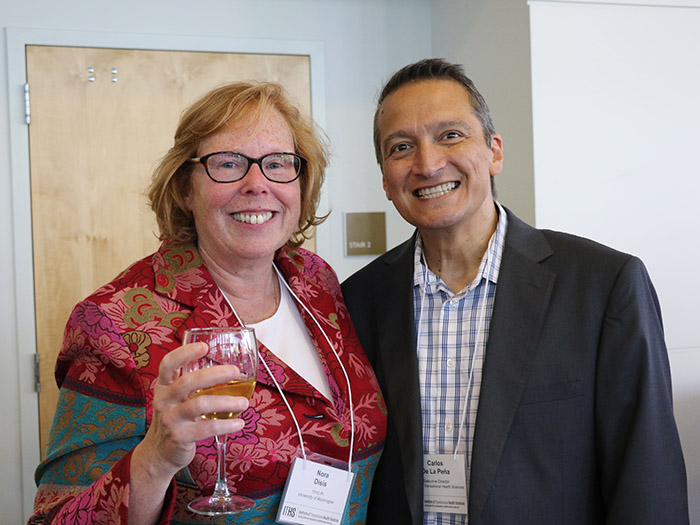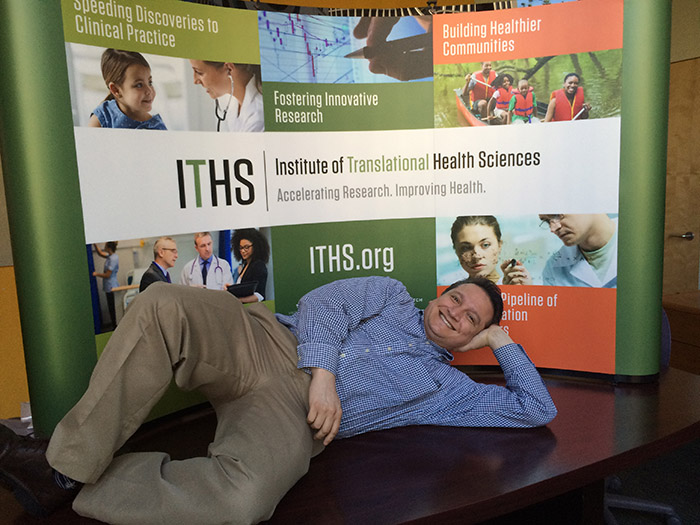Staff Sessions
Pre-event Survey
If you have not already done so, please complete the Pre-event Staff Track survey by following the link below.
A few logistical updates
- Please arrive to HUB 145 between 7:30 and 8:30 am to complete registration before the first session. Coffee and pastries will be available beginning at 7:30 am.
- The opening session will start promptly at 8:30 am.
- Please review the Husky Union Building map to locate room 145.
- Review information on how to get to the HUB and where to park.
Wednesday
8:30 am – 9:20 am
Keynote: Inspiration, Motivation, and Innovation to Improve the Health of our Communities
8:30 am – 9:20 am
From the perspective of a patient, clinician, and researcher, this session showcases a personal odyssey within our local academic health research environment. Be inspired by reflections on the cutting edge contributions of academic researchers in improving the health of our communities.
Speaker
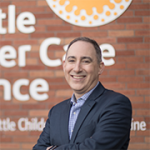
Keith Eaton, MD, PhD
Associate Professor, School of Medicine, University of Washington
Associate Member, Fred Hutchinson Cancer Research Center
Speaker Profile
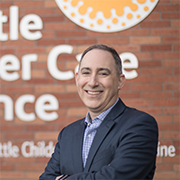
Keith Eaton, MD, PhD
Associate Professor, School of Medicine
University of Washington
Associate Member
Fred Hutchinson Cancer Research Center
Medical Director, Quality, Safety and Value, Infusion and Pharmacy Services; Clinical Director, Thoracic/Head & Neck Oncology
Seattle Cancer Care Alliance
Dr. Keith D. Eaton is a medical oncologist specializing in thoracic and head and neck cancers at the University of Washington/Seattle Cancer Care Alliance. He received his undergraduate degree in physics and mathematics from the University of California, Berkley and went on to pursue a doctorate in physics at the University of California, San Diego. While in graduate school, he decided to change direction and pursue a career in medicine and completed his Ph. D and M.D. at UCSD.
He currently serves as the Medical Director of Quality, Safety and Value, Medical Director of Infusion and Pharmacy, and Clinical Director of the Thoracic, Head and Neck Oncology programs at the Seattle Cancer Care Alliance. In addition to his clinical and administrative roles, Dr. Eaton is an active clinical investigator and has been a principal investigator for over twenty trials, including industry sponsored trials, investigator initiated trials, and NIH funded research. His research interests are in immunotherapy, molecular targeted therapies, and quality improvement.
In November 2012, Dr. Eaton was diagnosed with leukemia and found himself in a new role of patient and clinical trial subject. He went through multiple rounds of chemotherapy before receiving CAR T-Cell therapy at the University of Pennsylvania. After receiving this form of immunotherapy, his cancer was reduced to undetectable levels. He subsequently underwent a stem cell transplant and has returned to a healthy life.
Learn More
Wednesday
9:30 am – 10:30 am
Physician vs. the Physician-Investigator: Is there a Difference?
9:30 am – 10:30 am
This session will explore the similarities and differences between the role of the physician and the role of the physician investigator, comparing responsibilities in the areas of patient care decisions, treatment interventions, legal accountability, documentation, and collaborators.
Speaker

Paul Martin, MD
Co-PI of the Institute of Translational Health Sciences
Member, Fred Hutchinson Cancer Research Center
Speaker Profile
Co-Principal Investigator
Institute of Translational Health Sciences
Member
Fred Hutchinson Cancer Research Center
Paul J. Martin, MD

Paul J. Martin, MD, a co-Principal Investigator Emeritus of the Institute, served as the Medical Director of Clinical Research Support, the Fred Hutch Clinical Trials Office, from 2011 to 2017. He is a Professor Emeritus in the Clinical Research Division at Fred Hutch and a Professor Emeritus in the Department of Medicine at the UW. Dr. Martin has more than 40 years of experience with hematopoietic cell transplantation at Fred Hutch, focusing on acute and chronic graft-versus-host disease (GVHD). He has contributed to the field through several large retrospective studies of GVHD as well as prospective clinical trials for treatment or prevention of chronic GVHD. Dr. Martin serves as Director of the Pilot Program for the ITHS.
Learn more
The Protocol Review: How to Read for both the Big Picture and Your Responsibilities in Implementing a Study
9:30 am – 10:30 am
It is essential for research staff to understand fundamental concepts and terminology common to clinical trial protocols. This session will go over sample protocols and describe strategies for reading protocols to maximize study success.
Speaker

Amy Good, PhD
Manager, Research Coordination Center, ITHS
University of Washington
Speaker Profile
 Amy Good, PhD
Amy Good, PhDManager, Research Coordination Center, ITHS
University of Washington
Amy Good, PhD is the Implementation Manager for the Research Coordination Center at the University of Washington, Institute of Translational Health Sciences. Amy leads a team of research coordinators who support the conduct of clinical and translational research at University of Washington and other institutions in the Seattle area. The team provides creative staffing solutions to meet the needs of investigator-initiated and industry-sponsored clinical research projects.
Amy received her PhD in Clinical Psychology with a specialization in rehabilitation and behavioral medicine. She has been involved in health-related research for 20 years.
Wednesday
10:40 am – 11:40 pm
The Study Start-Up Process: Navigating the Sequence and Timing of Reviews, Approvals, and Resources before Your Study Starts
10:40 am – 11:40 pm
This session will illustrate how to steer a new research project through the financial, timeline, institutional oversight, and research support resources necessary to complete the study start-up process.
Speaker

Bojana Askovich, MD
Research Administrator
Seattle Cancer Care Alliance
Speaker Profile
 Bojana Askovich, MD
Bojana Askovich, MDResearch Administrator
Seattle Cancer Care Alliance
Dr. Bojana Askovich is the University of Washington’s Phase 1 Oncology Program Administrator at the Seattle Cancer Care Alliance, a position she has held since 2009. Bojana earned her MD at the University of Belgrade in Serbia where she also pursued undergraduate studies in microtubule assembly and drug biding. She then moved to the U.S. to continue her research, completing PhD in Biophysics at the University of Mississippi and postdoctoral studies in pharmacology at the Fox Chase Cancer Center.
Bojana’s interest in anti-cancer drug development brought her to Gilead and OSI Pharmaceuticals, where she was first introduced to clinical research and decided to make the switch from lab to clinic. She spent the next 5 years building a clinical research program at the department of Pediatric Cardiology at the University of Utah, assuming the role of Assistant Professor and Associate Director of Clinical Research.
In her current role as Administrator, Bojana has overseen growth of the University of Washington’s Phase 1 Oncology Program into premier regional center for conduct of first-in-human trials of cancer therapeutic agents. During her career, she has authored and co-authored 14 peer-reviewed scientific articles and more than 20 abstracts. Bojana is the proud mom of a 6-year-old boy and a 10-year-old girl and enjoys spending her free time with family.
The Clinical Research Billing Cycle: Staff Role in Research Budget
10:40 am – 11:40 pm
The clinical research billing cycle is a complex process that involves multiple offices billing both clinical and study tests to the patient and the study budget. This session will provide an overview of a typical clinical research billing cycle, and highlight hand-offs between billing offices and members of the research team to prevent errors.
Speaker

Kurt Schaeffer
Associate Director, Clinical Research Billing Office
Seattle Cancer Care Alliance
Speaker Profile
 Kurt Schaeffer
Kurt SchaefferAssociate Director, Clinical Research Billing Office
Seattle Cancer Care Alliance
Kurt Schaefer has worked at Seattle Cancer Care Alliance (SCCA) for 14 years with his tenure initially focused on Revenue Cycle and more recently, Research Billing Compliance. He helped form the Clinical Research Business Office (CRBO) at SCCA which has a primary focus on the monitoring and correction of research related charges for compliant billing.
Additionally, the CRBO team assists with the upstream study start up activities of coverage analysis, coding and pricing, and waiver requests. Kurt is currently serving as SCCA’s Institutional Lead for the OnCore CTMS project.”
Wednesday
11:40 pm – 12:40 pm
Lunch Break
11:40 pm – 12:40 pm
I am text block. Click edit button to change this text. Lorem ipsum dolor sit amet, consectetur adipiscing elit. Ut elit tellus, luctus nec ullamcorper mattis, pulvinar dapibus leo.
Lunch Options
Lunch Options
- Quinoa Salad (VG) (GF): Quinoa-chick pea tabbouleh salad with cucumber, tomato red onion, parsley, lemon juice and olive oil on a bed of romaine lettuce
- Tuna Nicoise Salad (GF): Tuna Nicoise Salad with seared rare ahi tuna, Mediterranean olives, roasted potatoes, haricot verts, hard-boiled egg, tomato and Dijon vinaigrette on a bed of mixed greens
- Turkey and Brie Croissant: Roasted turkey breast with sliced brie and cranberry-mango chutney on a butter croissant
- Roast Beef with Cheddar Cheese: Roast beef with cheddar cheese, sliced tomato and green leaf lettuce on sourdough bread
- Roasted Vegetable Focaccia (V): Seasoned, roasted zucchini, red onion and bell pepper with sun-dried tomato cream cheese and olive tapenade mayo on herb focaccia bread
[GF] Gluten Free
[VG] Vegan
[V] Vegetarian
Wednesday
12:45 pm – 1:45 pm
Research Budget Oversight: Tips for Responsible Financial Management
12:45 pm – 1:45 pm
Understanding the costs and financial commitments is essential to securing financial support commensurate with the research plan. This session will guide you through the development of a financial plan to keep your studies on target.
Speakers

Nora Disis, MD
Associate Dean for Translational Health Sciences, School of Medicine
University of Washington
Speaker Profile
Associate Dean, Translational Science
University of Washington
Professor of Medicine and Adjunct Professor of Pathology and Obstetrics and Gynecology
University of Washington
Athena Distinguished Professor of Breast Cancer Research
Mary L. “Nora” Disis, MD
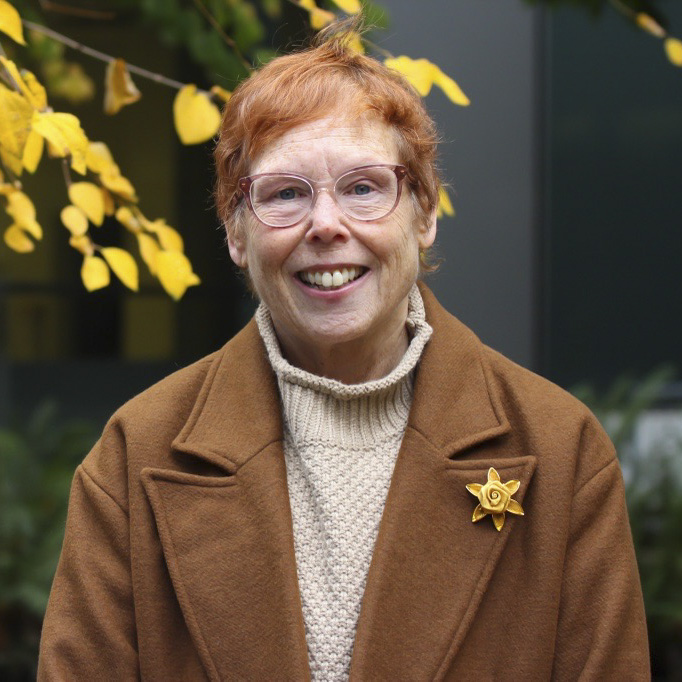
Dr. Nora Disis, ITHS Principal Investigator Emeritus and consultant faculty member, served as Principal Investigator of the Institute from 2007 through 2024. She is Director of the UW Medicine Cancer Vaccine Institute, as well as a Professor of Medicine and Adjunct Professor of Pathology and Obstetrics and Gynecology at UW, and a Member of the Fred Hutch.
Dr. Disis is an expert in breast and ovarian cancer immunology. Her research interest is in developing vaccine and cellular therapy for breast and ovarian cancer. She holds several patents in the field of targeted cancer therapy.
Dr. Disis received her Medical Degree from the University of Nebraska Medical School and completed a residency and chief residency in Internal Medicine at the University of Illinois in Chicago. Her fellowship in oncology was completed at the UW and Fred Hutch.
Photo by Lisa Stromme Warren
Learn more

Lauren Corulli
Lab Manager, Cancer Vaccine Institute
University of Washington
Speaker Profile
 Lauren Corulli
Lauren CorulliLab Manager, Cancer Vaccine Institute
University of Washington
Lauren Corulli has worked under Dr. Disis at the Cancer Vaccine Institute for over 8 years. She received her BS in Biology/Physiology from the University of Washington, and received her graduate certificate in Project Management from City University. Lauren works closely with both the preclinical and clinical cores at the CVI. She develops financial and scope controls for projects using Earned Value Measurements and Gantt Charts to create time-phased budgets. This approach to financial management allows researchers at the CVI to identify problems with overspending or underspending early on, and take corrective actions as needed to get things back on track. The information gained from this approach has helped the group improve budget estimates for new proposals over time.
Learn more
Clinical Trial Management Systems: A One Stop Solution
12:45 pm – 1:45 pm
Clinical Trials Management Systems (CTMS) integrate the multiple components of clinical research, such as billing, implementation timelines, and reporting guidelines. This session will describe the role of a CTMS and give a demonstration of the CTMS that will be rolled out at UW, SCCA, and Fred Hutch.
Speaker

Jason Morrison, MBA, PMP
Director of Research Information Technology
University of Washington
Speaker Profile
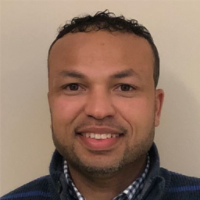 Jason Morrison, MBA, PMP
Jason Morrison, MBA, PMPDirector of Research Information Technology
University of Washington
Jason Morrison is the CTMS Program Director and University of Washington Medicine Director of Research Information Technology who is directing the implementation of the Oncore Clinical Trial Management system for UW, Fred Hutch and SCAA. Jason also directs the UW Research Information Technology department who supports health science research across the University of Washington.
Before arriving at the University of Washington, Jason spent 13 years at the Research Institute at Nationwide Childrens Hospital where he held positions of increasing responsibility from system programmer to project manager and most recently, as the Research IT Director. His background also includes system analysis, compliance and web design.
Jason holds a Masters in Business Administration, a Doctorate in Business Administration with a focus on Organizational Psychology and holds a Project Management Professional certification. Jason has experience implementing multiple research administration systems including a CTMS system for Nationwide Childrens Hospital.
Wednesday
2:00 pm – 3:00 pm
An Ethical Framework for Clinical Research: Rethinking and Going Beyond Informed Consent
2:00 pm – 3:00 pm
In this session you will learn about eight ethical benchmarks for clinical research and apply them to cases to understand the trade-offs involved in ethical analysis.
Speakers

Seema Shah, JD
Faculty, Treuman Katz Center for Pediatric Bioethics
Seattle Children’s
Speaker Profile
 Seema Shah, JD
Seema Shah, JDFaculty, Treuman Katz Center for Pediatric Bioethics
Seema Shah, JD, associate professor of pediatrics at the University of Washington and faculty member in the Treuman Katz Center for Pediatric Bioethics, is an expert in the fields of pediatrics and global health research ethics, as well as on ethical issues in the determination of death. After attending Stanford University, she completed a two-year fellowship in bioethics at the National Institutes of Health (NIH) Clinical Center and returned to Stanford for legal training. Before coming to Seattle Children’s, she was on faculty at the NIH in the Department of Bioethics, with a joint appointment at the Division of AIDS.
Learn more

Stephanie Kraft, JD
Acting Instructor, Treuman Katz Center for Pediatric Bioethics
Seattle Children’s
Speaker Profile
 Stephanie Kraft, JD
Stephanie Kraft, JDActing Instructor, Treuman Katz Center for Pediatric Bioethics
Seattle Children’s
Stephanie Kraft, JD, is an Acting Instructor at the Treuman Katz Center for Pediatric Bioethics at Seattle Children’s Research Institute and the University of Washington School of Medicine Department of Pediatrics. As a member of the ITHS bioethics core, she conducts empirical research on issues related to improving informed consent for research, and she also participates in the ITHS Research Bioethics Consultation service.
Kraft’s primary research interests are in understanding how people make decisions about research participation and in developing interventions to improve study enrollment, especially among historically underrepresented patient populations.

Ben Wilfond, MD
Director, Treuman Katz Center for Pediatric Bioethics
Seattle Children’s
Speaker Profile
Director, Treuman Katz Center for Pediatric Bioethics
Seattle Children’s
Benjamin S. Wilfond, MD
Benjamin S. Wilfond, MD, is the director of the Treuman Katz Center for Pediatric Bioethics at Seattle Children’s Research Institute and professor and chief of the Division of Bioethics in the Department of Pediatrics at the University of Washington School of Medicine. He is also adjunct professor in the UW Department of Bioethics and Humanities.
Dr. Wilfond is the chief of the Bioethics Consultation Service and an attending physician in the Division of Pulmonary Medicine at Seattle Children’s Hospital. He also coordinates Research Bioethics Consult Service for the Institute of Translational Health Sciences.
He attended New Jersey Medical School and completed his pediatric residency and his fellowship in pediatric pulmonology and medical ethics at the University of Wisconsin. Prior to moving to Seattle in 2006, he has held faculty appointments at the University of Arizona, National Institutes of Health, and Johns Hopkins University. He is the former chair of the intramural NHGRI IRB and has 25 years of experience on IRBs and DMCs.
He is currently working on ethical and policy issues related to the implementation of genetic testing for reproductive purposes, the role of disabilities in clinical decision‐making, the impact of research ethics consultation in clinical research, and the understanding of public attitudes about research on medical practices. He is the PAST president of the Association of Bioethics Program Directors and the chair for Pediatrics Working Group for the NHGRI Clinical Sequencing Exploratory Research Consortium.

Learn more

Kathryn Porter, JD, MPH
Research Associate
Seattle Children’s
Speaker Profile
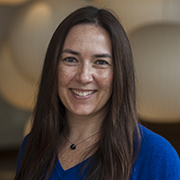 Kathryn Porter, JD, MPH
Kathryn Porter, JD, MPHResearch Associate
Seattle Children’s
Kathryn M. Porter, JD, MPH is a Research Scientist for the Treuman Katz Center for Pediatric Bioethics at Seattle Children’s Research Institute. She is the ITHS Bioethics Program Manager and a research bioethics consultant. Her own research focuses on research ethics, improvement of informed consent and the ethical and legal issues related to genetics.
Accelerating Study Initiation: Institutional Resources to Catalyze Study Design
2:00 pm – 3:00 pm
Learn sound methods to determine how best to approach implementing a new study, and apply elements of project management to organize the financial, timeline, institutional oversight, and research support resources to move your study through the start-up process.
Speaker

Ashley Waldie, MA, CCRP
Operations Manager
Fred Hutchinson Cancer Research Center
Speaker Profile
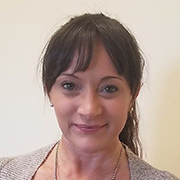 Ashley Waldie, MA, CCRP
Ashley Waldie, MA, CCRPOperations Manager
Fred Hutchinson Cancer Research Center
Ashley Waldie, MA, CCRP, is the Start-up Operations Manager in Clinical Research Support (CRS). At CRS, Ashley manages a central team that provides comprehensive study start-up support on behalf of Cancer Consortium investigators to open clinical trials in 100 days.
Ashley is a seasoned oncology start-up project manager who has built systems to manage complex timelines for CRS and created tools to support study staff across the Consortium. She has developed communication and budget negotiation strategies that are effective and well-received by sponsors and CROs.
Wednesday
3:10 pm – 4:10 pm
Adverse Event Vigilance: The Intersection of Patient Safety, Treatment Risks & Compliant Reporting
3:10 pm – 4:10 pm
This session will give you insights into the importance of comprehensive identification, tracking, and reporting of events experienced by research participants in your studies, and provide best practices for mitigating common issues around adverse event documentation.
Speaker

Reina Hibbert, CCRC
Regulatory Affairs Coordinator/Manager
Seattle Cancer Care Alliance
Speaker Profile

Reina Hibbert, CCRC
Regulatory Affairs Coordinator/Manager
Seattle Cancer Care Alliance
Reina Hibbert, CCRC, has been working in the clinical research industry for almost 15 years. Her previous experience includes bench laboratory and Institutional Review Board operations. With an extensive clinical and regulatory research background, Reina currently works on protocol development, streamlining implementation and risk-based study management in early-Phase oncology drug trials.
An Ethical Framework for Clinical Research: Rethinking and Going Beyond Informed Consent
3:10 pm – 4:10 pm
In this session you will learn about eight ethical benchmarks for clinical research and apply them to cases to understand the trade-offs involved in ethical analysis.
Speakers

Seema Shah, JD
Faculty, Treuman Katz Center for Pediatric Bioethics
Seattle Children’s
Speaker Profile
 Seema Shah, JD
Seema Shah, JDFaculty, Treuman Katz Center for Pediatric Bioethics
Seema Shah, JD, associate professor of pediatrics at the University of Washington and faculty member in the Treuman Katz Center for Pediatric Bioethics, is an expert in the fields of pediatrics and global health research ethics, as well as on ethical issues in the determination of death. After attending Stanford University, she completed a two-year fellowship in bioethics at the National Institutes of Health (NIH) Clinical Center and returned to Stanford for legal training. Before coming to Seattle Children’s, she was on faculty at the NIH in the Department of Bioethics, with a joint appointment at the Division of AIDS.
Learn more

Stephanie Kraft, JD
Acting Instructor, Treuman Katz Center for Pediatric Bioethics
Seattle Children’s
Speaker Profile
 Stephanie Kraft, JD
Stephanie Kraft, JDActing Instructor, Treuman Katz Center for Pediatric Bioethics
Seattle Children’s
Stephanie Kraft, JD, is an Acting Instructor at the Treuman Katz Center for Pediatric Bioethics at Seattle Children’s Research Institute and the University of Washington School of Medicine Department of Pediatrics. As a member of the ITHS bioethics core, she conducts empirical research on issues related to improving informed consent for research, and she also participates in the ITHS Research Bioethics Consultation service.
Kraft’s primary research interests are in understanding how people make decisions about research participation and in developing interventions to improve study enrollment, especially among historically underrepresented patient populations.

Ben Wilfond, MD
Director, Treuman Katz Center for Pediatric Bioethics
Seattle Children’s
Speaker Profile
Director, Treuman Katz Center for Pediatric Bioethics
Seattle Children’s
Benjamin S. Wilfond, MD
Benjamin S. Wilfond, MD, is the director of the Treuman Katz Center for Pediatric Bioethics at Seattle Children’s Research Institute and professor and chief of the Division of Bioethics in the Department of Pediatrics at the University of Washington School of Medicine. He is also adjunct professor in the UW Department of Bioethics and Humanities.
Dr. Wilfond is the chief of the Bioethics Consultation Service and an attending physician in the Division of Pulmonary Medicine at Seattle Children’s Hospital. He also coordinates Research Bioethics Consult Service for the Institute of Translational Health Sciences.
He attended New Jersey Medical School and completed his pediatric residency and his fellowship in pediatric pulmonology and medical ethics at the University of Wisconsin. Prior to moving to Seattle in 2006, he has held faculty appointments at the University of Arizona, National Institutes of Health, and Johns Hopkins University. He is the former chair of the intramural NHGRI IRB and has 25 years of experience on IRBs and DMCs.
He is currently working on ethical and policy issues related to the implementation of genetic testing for reproductive purposes, the role of disabilities in clinical decision‐making, the impact of research ethics consultation in clinical research, and the understanding of public attitudes about research on medical practices. He is the PAST president of the Association of Bioethics Program Directors and the chair for Pediatrics Working Group for the NHGRI Clinical Sequencing Exploratory Research Consortium.

Learn more

Kathryn Porter, JD, MPH
Research Associate
Seattle Children’s
Speaker Profile
 Kathryn Porter, JD, MPH
Kathryn Porter, JD, MPHResearch Associate
Seattle Children’s
Kathryn M. Porter, JD, MPH is a Research Scientist for the Treuman Katz Center for Pediatric Bioethics at Seattle Children’s Research Institute. She is the ITHS Bioethics Program Manager and a research bioethics consultant. Her own research focuses on research ethics, improvement of informed consent and the ethical and legal issues related to genetics.
Thursday
8:30 am – 9:30 am
Responsibilities and Oversight Obligations: The Critical Role of the Principal Investigator
8:30 am – 9:30 am
This is a deep dive into the critical leadership role of the Principal Investigator for a clinical trial. You will work through case studies that highlight important compliance responsibilities, quality assurance, and methods to manage the clinical research team.
Speaker

Ann Melvin, MD, MPH
Associate Professor, Pediatrics
Seattle Children’s
Speaker Profile
Associate Professor, Pediatrics
Seattle Children’s
Learn more
Leveraging the EMR: Tools & Rules for EMR Research Data Acquisition
8:30 am – 9:30 am
Electronic medical records (EMR) are a common source of clinical research data. In this session, you will learn about the tools and resources available to optimize the EMR to identify potential research participants and run custom reports to quickly create a data set, as well as how to comply with EMR privacy rules when using protected health information.
Speaker

Beth Britt, PhD
Director of Analytics, School of Medicine
University of Washington
Speaker Profile
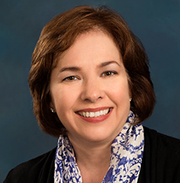 Beth Britt, PhD
Beth Britt, PhDDirector of Analytics, School of Medicine
University of Washington
Dr. Beth Britt is the Director of Analytics, reporting to both School of Medicine BIME Department and UW Medicine IT Services. The Analytics group at UW Medicine is comprised of approximately 50 architects, analysts, developers and administrators managing a set of business intelligence solutions and warehouses. Since joining UW Medicine in May of 2015, Dr. Britt has led and/or supported efforts to implement a new enterprise wide data governance model, create analytics intake and prioritization processes, deploy a new data access policy and training, prototype new self-service technologies, begin data management work and develop a three year analytics vision and roadmap.
Dr. Britt has over 18 years of experience in information technology, and has been in leadership roles for business and program management, strategic practice/consulting and data analytics. Most recently, she was the Director of Platform services at Intellectual Ventures, a private innovation investment firm, with responsibility for analytics and business intelligence. In prior roles, she led analytic efforts, created business intelligence and knowledge management practices, standardizing processes, data, taxonomies, and enterprise ontologies. She has built and managed multiple teams of data and business analysts responsible for day-to-day management of enterprise data and tools.
Dr. Britt holds a PhD in Computer Science from Washington State University, Beth holds a Certificate in Data Science from UW, Six Sigma Green Belt and is a Certified Data Management Professional. She has served on Advisory Councils at Microsoft, published in various journals/books and spoken at a variety of conferences.
Thursday
9:40 am – 10:40 am
Protocol Design: Balancing Scientific Validity with Ethical Approaches and Pragmatic Operations
9:40 am – 10:40 am
Poorly designed protocols can result in recruitment problems, inadequate or unreliable data, protocol deviations, and safety issues. This session will guide you through the process of planning and writing a clinical research protocol from the perspective of the Good Clinical Practice (GCP) protocol guidelines to ensure successful implementation of your research study.
Speaker

Thomas Fleming, PhD
Professor, Biostatistics
University of Washington
Speaker Profile
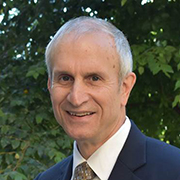 Thomas Fleming, PhD
Thomas Fleming, PhDProfessor, Biostatistics
University of Washington
Thomas R. Fleming, PhD, is Professor and former Chair of the Department of Biostatistics at the University of Washington in Seattle, Member of the Fred Hutchinson Cancer Research Center, and the former Director of the Statistical Center for HIV/AIDS Prevention Trial Network, NIAID. Dr. Fleming received his BA in 1972 from the University of St. Thomas and his MA in 1974 and PhD in 1976 from the University of Maryland, College Park.
He has chaired or served on Data Monitoring Committees for more than 100 clinical trials. He is a Special Government Employee for the FDA, and for 30 years he has served as a regular member of several FDA Advisory Committees and as an invited voting member on more than 100 occasions.
Dr Fleming has received numerous awards. He is recipient of the Outstanding Teaching Award, School of Public Health from the University of Washington, and the FDA Commissioner’s Special Citation Award for Extraordinary Contribution to the Agency. He is the 2007 Greenberg Lecturer at University of North Carolina, the 2009 Distinguished Lecturer at the School of Public Health at the University of Washington and, in 2011, the Ross Prentice Endowed Professor of Biostatistical Collaboration. In 2012, he was elected to membership in the Institute of Medicine of the National Academies.
Learn more
Clinical Trial Documentation: Essential Recordkeeping for Compliance
9:40 am – 10:40 am
This session provides an overview of essential clinical trial documentation for investigative sites involved in FDA regulated drug trials. Attendees will be able to describe why documentation is integral to conducting compliant and ethical clinical research, understand the various types of documentation required throughout a study life cycle, review samples of pertinent data tools and strategies for proper management, and engage in a hands on activity to further the learning.
Speakers

Kersten Brinkworth, CCRC
Training Program Manager
Fred Hutchinson Cancer Research Center
Speaker Profile
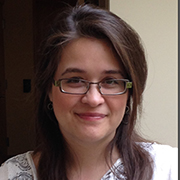 Kersten Brinkworth, CCRC
Kersten Brinkworth, CCRCTraining Program Manager
Fred Hutchinson Cancer Research Center
Kersten Brinkworth, CCRA is the Training Program Manager for Clinical Research Support (CRS) at the Fred Hutchinson Cancer Research Center. Kersten has over twenty years of clinical research experience working within the investigative site, CRO, and Sponsor settings.
Kersten has extensive experience working with cross functional teams and supporting various activities including site monitoring, contract and billing management, vendor management, data listing reviews, IRB submissions, site activation and closeout, CTMS and eTMF development, process improvement implementation, onboarding, and training.

Claudia Moore, MSc
Regulatory Program Operations Manager
Fred Hutchinson Cancer Research Center
Speaker Profile
 Claudia Moore, MSc
Claudia Moore, MScRegulatory Program Operations Manager
Fred Hutchinson Cancer Research Center
Claudia Moore, M.Sc. Biomedical Regulatory Affairs, is the CRS Regulatory Operations Program Manager at the Fred Hutchinson Cancer Research Center. She has eight years of experience supporting clinical activities for FDA regulated Industry Sponsored phase I, II, and III studies conducted in the U.S., Canada, Europe, and Mexico.
In her CRA roles, Claudia implemented an eTMF, developed study protocols and source worksheets, and reviewed monitoring visit reports and study data. As a Clinical Study Manager, she developed clinical study reports, led clinical data review and validation initiatives, prepared investigation sites for FDA BIMO audits, and represented the Sponsor in FDA communication for IDE and PMA submission.
Thursday
10:50 am – 11:50 am
Return of Research Results: From Design to Delivery
10:50 am – 11:50 am
This session will discuss best practices for study designs that will support efficient reporting in publications, ClinicalTrials.gov, and other reporting requirements.
Pre-read materials: Information for the Researcher about ClinicalTrials.gov
Speaker

Ted Gooley, PhD
Director, Clinical Biostatistics Program
Fred Hutchinson Cancer Research Center
Speaker Profile
 Ted Gooley, PhD
Ted Gooley, PhDDirector, Clinical Biostatistics Program
Fred Hutchinson Cancer Research Center
Dr. Gooley is a biostatistician, with well-recognized expertise in the design and analysis of laboratory research, clinical trials and observational studies. He is the Director of the Clinical Biostatistics Program within the Clinical Research Division and the Director of the Biostatistics Shared Resource at the Fred Hutch.
Dr. Gooley continues making vital contributions to the design, analysis and reporting of clinical trials in hematopoietic cell transplant (HCT), and in rheumatology, breast cancer, ovarian cancer, as well as a wide variety of large laboratory projects. He is one of twelve faculty who teach a summer course for clinical fellows who are starting a career in HCT. He also teaches a biostatistics/clinical trials class to the Hematology/Oncology Fellows at the Fred Hutch.
Learn more
The Human Research Protection Program: Cultivating a Partnership with your IRB
10:50 am – 11:50 am
Institutional Review Boards (IRBs) have a federal mandate to facilitate research that protects the rights, safety, and well-being of research participants. By establishing a collaborative relationship with your IRB office, you can minimize misunderstandings, efficiently move your studies through the work flow, and together promote safe, ethical, high quality research.
Speaker

Adrienne Meyer, MPA, CIP
Assistant Director for Research Support, Human Subjects Division
University of Washington
Speaker Profile
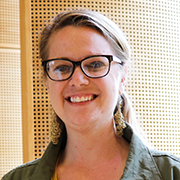 Adrienne Meyer, MPA, CIP
Adrienne Meyer, MPA, CIPAssistant Director for Research Support, Human Subjects Division
University of Washington
Adrienne Meyer, MPA, CIP, is the Assistant Director for Researcher Support in the Human Subjects Division at the University of Washington. Adrienne is a regulatory specialist and frequent lecturer on issues associated with regulatory compliance and research ethics in a broad spectrum of research disciplines.
Adrienne has been at the UW for nearly 20 years and has worked in many capacities with researchers from nearly every department and research discipline: from behavioral research with young children to first-in-human chemotherapy trials. She was recently a member of the Research on Medical Practices (ROMP) Ethics study team, which applied qualitative and quantitative methods to understand patient preferences for research consent.
Learn more
Thursday
11:50 pm – 12:40 pm
Lunch Break
11:50 pm – 12:40 pm
Lunch Options
Lunch Options
- Quinoa Salad (VG) (GF): Quinoa-chick pea tabbouleh salad with cucumber, tomato red onion, parsley, lemon juice and olive oil on a bed of romaine lettuce
- Tuna Nicoise Salad (GF): Tuna Nicoise Salad with seared rare ahi tuna, Mediterranean olives, roasted potatoes, haricot verts, hard-boiled egg, tomato and Dijon vinaigrette on a bed of mixed greens
- Turkey and Brie Croissant: Roasted turkey breast with sliced brie and cranberry-mango chutney on a butter croissant
- Roast Beef with Cheddar Cheese: Roast beef with cheddar cheese, sliced tomato and green leaf lettuce on sourdough bread
- Roasted Vegetable Focaccia (V): Seasoned, roasted zucchini, red onion and bell pepper with sun-dried tomato cream cheese and olive tapenade mayo on herb focaccia bread
[GF] Gluten Free
[VG] Vegan
[V] Vegetarian
I am text block. Click edit button to change this text. Lorem ipsum dolor sit amet, consectetur adipiscing elit. Ut elit tellus, luctus nec ullamcorper mattis, pulvinar dapibus leo.
Thursday
12:45 pm – 1:45 pm
Noncompliance, Unanticipated Problems & Complaints: Learn to Prevent, Correct and Report
12:45 pm – 1:45 pm
Problems happen in every research study. This session will provide several compliance case studies to work through in order to highlight some common issues, what you can do to avoid serious problems, and what resources are available when things do go wrong.
Speaker
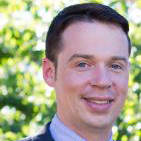
Jason Malone, MPH
Assistant Director for Regulatory Affairs, Human Subjects Division
University of Washington
Speaker Profile
 Jason Malone, MPH
Jason Malone, MPHAssistant Director for Regulatory Affairs, Human Subjects Division
University of Washington
Jason Malone is currently the Assistant Director, Regulatory Affairs at the University of Washington (UW) Human Subjects Division (HSD). In his role there he oversees the compliance and post-approval monitoring programs which includes identifying, reviewing and managing research complaints and reports of non-compliance and unanticipated problems.
Prior to HSD he was the Clinical Compliance Officer for the UW Institute of Translational Health Sciences where he ran the compliance programs for the pediatric and adult Clinical Research Centers as well as the Data and Safety Monitoring program.
He has over 17 years of experience in clinical trials monitoring and human subjects research protection. Jason received a Master of Public Administration degree from the University of Washington with a focus on global health.
ClinicalTrials.gov: Your Role in Providing Public Access to Trials & the FDA/NIH Rules
12:45 pm – 1:45 pm
This session will provide an overview of the federal requirements for registering and maintaining study information on ClinicalTrials.gov, and give tricks and tips to help you hasten the process.
Speaker

Tania Bardyn, MLIS, AHIP
Associate Dean of University Libraries
University of Washington
Speaker Profile
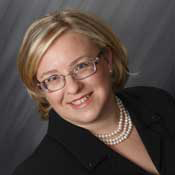 Tania Bardyn, MLIS, AHIP
Tania Bardyn, MLIS, AHIPAssociate Dean of University Libraries
University of Washington
Tania Bardyn, MLIS, AHIP, joined the University of Washington on November 7, 2011 as Associate Dean of University Libraries, Director of the Health Sciences Library, and Director, National Network of Libraries of Medicine (NN/LM) Pacific Northwest Region (PNR).
Within the Medical Library Association she currently serves on the Executive Board of the Hospital Library Section and chairs their Strategic Planning Committee. Within the American Library Association, Tania chairs the Library Interiors, Furnishings, and Equipment Committee, in the LLAMA Building and Equipment Section.
Tania holds a B.A with honors in Political Studies and Economics from Queen’s University in Ontario, and a MSLIS from the University of Western Ontario. Tania recently graduated from the 2010-2011 class of the NLM/Association of Academic Health Sciences Libraries Leadership Fellows Program.
Learn more
Thursday
2:00 pm – 3:00 pm
Closing Panel: Engaging Your Team: Fostering an Integrated Team Toward Study Success
2:00 pm – 3:00 pm
What does a successful research team look like? How do these teams foster the implementation of high quality research in a productive team environment? We will hear from faculty-staff teams about how they successfully navigate the research process and maintain team engagement. Audience members will have a chance to ask questions of these teams.
Panel

Amy Good, PhD
Manager, Research Coordination Center, ITHS
University of Washington
Speaker Profile
 Amy Good, PhD
Amy Good, PhDManager, Research Coordination Center, ITHS
University of Washington
Amy Good, PhD is the Implementation Manager for the Research Coordination Center at the University of Washington, Institute of Translational Health Sciences. Amy leads a team of research coordinators who support the conduct of clinical and translational research at University of Washington and other institutions in the Seattle area. The team provides creative staffing solutions to meet the needs of investigator-initiated and industry-sponsored clinical research projects.
Amy received her PhD in Clinical Psychology with a specialization in rehabilitation and behavioral medicine. She has been involved in health-related research for 20 years.

Chessa Goss, MSc
Research Coordinator, ITHS
University of Washington
Speaker Profile
 Chessa Goss, MSc
Chessa Goss, MScResearch Coordinator, ITHS
University of Washington
Chessa Goss is a Research Coordinator at the University of Washington, Institute of Translational Health Sciences, Research Coordination Center. She obtained her Bachelors and Masters of Biological Science from the University of Rhode Island, although she is a Seattle native.
Chessa specializes in clinical trial study start up (including protocol development, IRB applications, and budgeting) and implementation. Working in a variety of human subjects studies from pharmaceutical to nutraceutical, and investigational device trials, she has worked with a range of departments including Radiology, Neurology, Cardiology, Pulmonary, Urology, Oncology, and Neurosurgery.

Kevin Conley, PhD
Professor, Radiology
University of Washington
Speaker Profile
 Kevin Conley, PhD
Kevin Conley, PhDProfessor, Radiology
University of Washington
Kevin Conley is the director of the Translational Center for Metabolic Imaging (TCMI) at the University of Washington Medical Center. The TCMI goals are: 1) Development: to create in vivo diagnostic tools that open a window into human and animal cellular metabolism in vivo, 2) Discovery: to use these high-sensitivity imaging innovations to identify factors that underlie aging and disease in vivo, and 3) Intervention: to test novel approaches that reverse mitochondrial, muscle and vascular dysfunction with age and disease.
Dr. Conley has been at the University of Washington in Radiology, Physiology and Biophysics and Bioengineering since 1988. He was a postdoctoral fellow at Harvard University, Harvard Medical School and the University of Bern with graduate training at the University of Wisconsin-Madison.
Learn more

Jeanne Hoffman, PhD
Professor, Rehabilitation Medicine
University of Washington
Speaker Profile
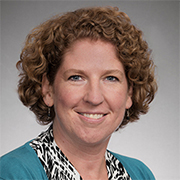 Jeanne Hoffman, PhD
Jeanne Hoffman, PhDProfessor, Rehabilitation Medicine
University of Washington
Jeanne Hoffman, Ph.D. is a Professor at the University of Washington (UW) in the Department of Rehabilitation Medicine. She is an attending psychologist at the UW Medical Center where she spends time on the inpatient rehabilitation unit helping individuals cope with new disability and managing symptoms of depression and anxiety. She has been involved in research on individuals with Traumatic Brain Injury (TBI) since 2001.
Dr. Hoffman has been involved with a variety of research projects affiliated with the University of Washington TBI Model System over the years, such as examining access to inpatient rehabilitation for individuals with TBI and is now the Project Director on the recently funded UW TBIMS. The TBIMS was the driving force behind the BRITE project funded by PCORI now getting started.
Learn more

Kevin Gertz
Research Manager
University of Washington
Speaker Profile
 Kevin Gertz
Kevin GertzResearch Manager
University of Washington
Kevin Gertz is a research manager in the Department of Rehabilitation Medicine at the University of Washington. He manages clinical trials exploring behavioral and psychological interventions for treatment of chronic pain, fatigue, depression and other conditions secondary to chronic medical conditions such as traumatic brain injury, multiple sclerosis and spinal cord injury.
Mr. Gertz is involved in all aspects of grants-funded research: proposal writing, preparation and development following receipt of funding, monitoring and maintenance, and data analysis.
Carlos De La Peña, MD, MBA, MHA
Executive Director, January, 2015 – September, 2018
Carlos De La Peña was the executive director of the Institute of Translational Health Sciences (ITHS). In this role, Dr. De La Peña directed all financial, operational and programmatic functions of ITHS, an institute primarily funded by the Nation Institutes of Health’s Clinical and Translational Science Awards (CTSA) Program.
Before Dr. De La Peña came to ITHS, he spent four years as Administrator of the Clinical & Translational Science Institute of Southeast Wisconsin from 2010-2014. Prior to that he was the Associate Director of the Clinical and Translational Research Center, the CTSA at the University of Texas Southwestern Medical Center in Dallas. Dr. De La Peña has also worked as a Clinical Manager for Southwest Medical Center in St. Louis, Director of Operations for La Clinica St. Louis-Community Health Care Centers in St. Louis, and as Supervisor of Campus Operations for the University of Arkansas for Medical Sciences in Little Rock.
Dr. De La Peña earned his medical degree at the Universidad Autónoma de Madrid Medical School. He holds an MBA from University of Texas at Arlington, and a Master of Healthcare Administration from George Washington University as well as an International Master of Business Administration.

Paul J. Martin, MD

Paul J. Martin, MD, a co-Principal Investigator Emeritus of the Institute, served as the Medical Director of Clinical Research Support, the Fred Hutch Clinical Trials Office, from 2011 to 2017. He is a Professor Emeritus in the Clinical Research Division at Fred Hutch and a Professor Emeritus in the Department of Medicine at the UW. Dr. Martin has more than 40 years of experience with hematopoietic cell transplantation at Fred Hutch, focusing on acute and chronic graft-versus-host disease (GVHD). He has contributed to the field through several large retrospective studies of GVHD as well as prospective clinical trials for treatment or prevention of chronic GVHD. Dr. Martin serves as Director of the Pilot Program for the ITHS.




